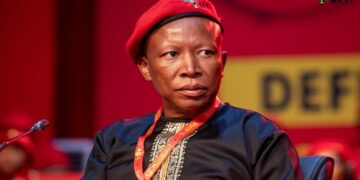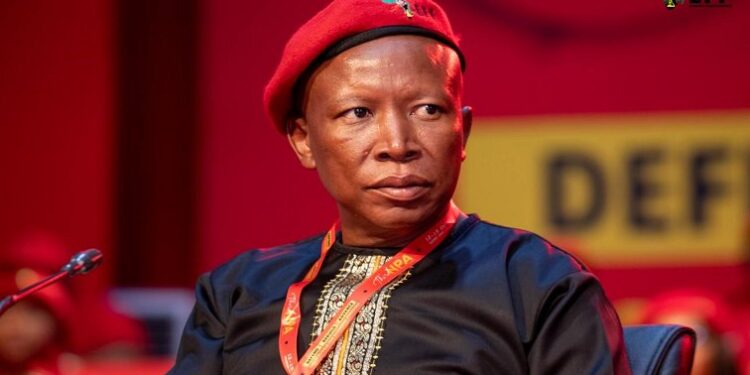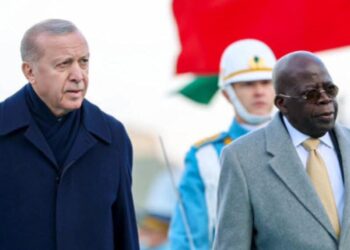By Enyichukwu Enemanna
Despite a contentious meeting between South African President Cyril Ramaphosa and his US counterpart, Donald Trump, in Washington earlier in the week in which the US leader accused Pretoria of genocide against white farmers, South Africa’s firebrand opposition leader Julius Malema says he will continue to chant controversial songs that dominated discussion at the Oval Office.
Trump had, during the meeting on Wednesday, confronted Ramaphosa with a four-minute-long video to back his claims of “white genocide” in the country, which has strained relations between both countries.
In the video, Malema, 44, was seen chanting songs which the US claims promote attacks on white farmers in South Africa, who Washington also says are the target of land administration laws enacted by Pretoria.
Malema, who leads the opposition Economic Freedom Fighters (EFF) party, chanted “cut the throat of whiteness” as well as a controversial anti-apartheid song, “Kill the Boer, kill the farmer”.
Speaking at a regional election on Saturday, Malema said the controversial lyrics were “the heritage of our struggle” and vowed to keep on using them.
“It is not my song. I did not compose this song,” Malema said in televised comments. “The struggle heroes composed this song. All I am doing is to defend the legacy of our struggle.”
“Therefore I will never stop singing the song,” he said. “That will be a betrayal to the struggle of our people.”
The decades-old “Kill the Boer” rallying cry was born during the struggle against the brutal policies of white-minority rule, and its use since the end of apartheid in 1994 infuriates parties that represent white South Africans, with many attempting to get it permanently banned.
A ban in 2010 was lifted after courts said it does not constitute hate speech and instead should be regarded in its historical context, and for the fact that it was being used by Malema only as a “provocative means of advancing his party’s political agenda”.
Malema, who portrays himself as the defender of society’s most disadvantaged, is very popular among young South Africans who are disenchanted with the level of inequalities decades after apartheid.
Facts have since emerged that a part of the video was a screenshot of a Reuters news agency video taken in the Democratic Republic of Congo and not the grave of white farmers in South Africa as portrayed by the US leader.
The image was pulled from Reuters footage shot following deadly battles with Rwanda-backed M23 rebels.
Ramaphosa had visited Washington in an attempt to mend ties with the United States after persistent criticism from Trump in recent months over the land laws, foreign policy, and alleged bad treatment of its white minority, allegations which South Africa denies.



































